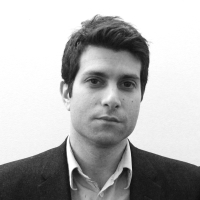There’s a gnawing contradiction at the center of a high profile White House summit being held this week dedicated to curbing violent extremism: The U.S. is heading the opposition to extremism at the same moment the country is increasingly allied with violent extremists in the fight against ISIS.It’s one of a number of inconvenient issues as national and global leaders gather to figure out what to do about the radicals in their midst. Critics, including former administration officials and terrorism experts, are skeptical about the effectiveness of government initiatives. Many question whether the summit amounts to much more than a feel-good PR spectacle.
The “Countering Violent Extremism” conference, which began Tuesday and runs through Friday, has drawn elected leaders and lawmakers from around the world, U.S. law enforcement officials, religious leaders, and experts on radical ideologies and their adherents. Participants are supposed to address a broad range of extremist threats, but it’s clear from President Obama’s own remarks that ISIS and the threat from jihadist groups have an outsized presence at the summit.
Few details about the summit’s agenda were released ahead of the event but even before it began there was debate over how extremism would be defined. The White House was accused, variously, of “avoiding the world Muslim” in its discussion of extremist threats and focusing too narrowly on Islamic radicalism at the exclusion of other violent groups. The terms of that debate miss another distinction. As the war against ISIS illustrates, there are extremist groups the government is willing to tolerate, and in some cases work alongside, and others it is not.
In Iraq, the U.S indirectly funds and supports Iran-backed militias to counter ISIS. The current dynamic pits one group of religious radicals, U.S.-backed Shia militias, against another, the Sunni jihadists of ISIS. Violent extremism is the only constant in that equation.
Shia militias have played a crucial role battling ISIS. Some of the groups are more radical than others but none have been disqualified from receiving U.S. support based on their extremist beliefs. Asaib Ahl al-Haq, an Iran-backed militia known for carrying out lethal attacks on American soldiers in Iraq, has operated with U.S. air support during operations against ISIS.
The U.S. mission in Iraq is focused on training the Iraqi military so that it can assume leadership of the fight against ISIS and over the country’s security. The hope is if that happens, the militias would either be absorbed into the uniformed forces or return to their homes. Meanwhile the militias’ power is increasing—fueling sectarian violence and further dividing the country. Monday, in an announcement that couldn’t have surprised many observers of the situation in Iraq, the leader of Lebanon’s Hezbollah revealed that his group had fighters operating in Iraq.
Coming up with a strategy to contain ISIS after the Iraqi army collapsed, and without using U.S. ground forces, presented few good options. Under those constraints, the U.S. may have decided the threat posed by ISIS was grave enough that it justified partnering with other terrorist groups who pose less immediate dangers. That logic, governed by a “least bad choice” scenario, may have been necessary, but it runs counter to the idea that the U.S. is in the business of universally opposing violent extremism.
In an article published Tuesday in the Los Angeles Times President Obama wrote:
“Governments that deny human rights play into the hands of extremists who claim that violence is the only way to achieve change. Efforts to counter violent extremism will only succeed if citizens can address legitimate grievances through the democratic process and express themselves through strong civil societies. Those efforts must be matched by economic, educational and entrepreneurial development so people have hope for a life of dignity.”
By any standard, the government of Bashar al-Assad in Syria has denied the human rights of Syrians throughout the country’s brutal civil war. The Assad regime has murdered its own citizens indiscriminately and continues to use barrel bombs on populated areas. Yet, because Assad is backed by Iran, our quiet partners in Iraq, and presents himself as the alternative to ISIS, the U.S. position has moved from demanding his ouster to tacit acceptance of keeping him in power.
Outside the borders of the U.S., extremism appears to be flourishing. But most of the discussions at the White House summit are not about foreign policy. The conference’s focus is on local initiatives to stem radicalization and intercept potential recruits to extremist groups. Here’s where the question of effectiveness comes up.
“Everyone [in the government] is looking for a win on their watch, which is never going to happen. This is a long play,” said a source involved in U.S. information operations. The source said any overt U.S. government—or even U.S. government proxy—attempts to try to influence future radicals were bound to fail. “We don’t need press releases, speeches, or interviews… The only message that’s going to work is kids talking to other kids—not religious leaders, not revered icons.”
In remarks Wednesday night President Obama called ISIS fighters terrorists rather than religious figures. “We are not at war with Islam,” the president said, “we are at war with people who have perverted Islam."
That kind of pronouncement, while understandable, puts the U.S. in an awkward position vis-a-vis our current partners in Iraq and the violent extremists on whom we now rely.
Correction: This original version of this story incorrectly referred to the Iraqi militia group Asaib Ahl al-Haq as an officially recognized terrorist organization. The story has been updated to reflect that Asaib Ahl al-Haq is not on the State Department list of foreign terrorist organizations.



